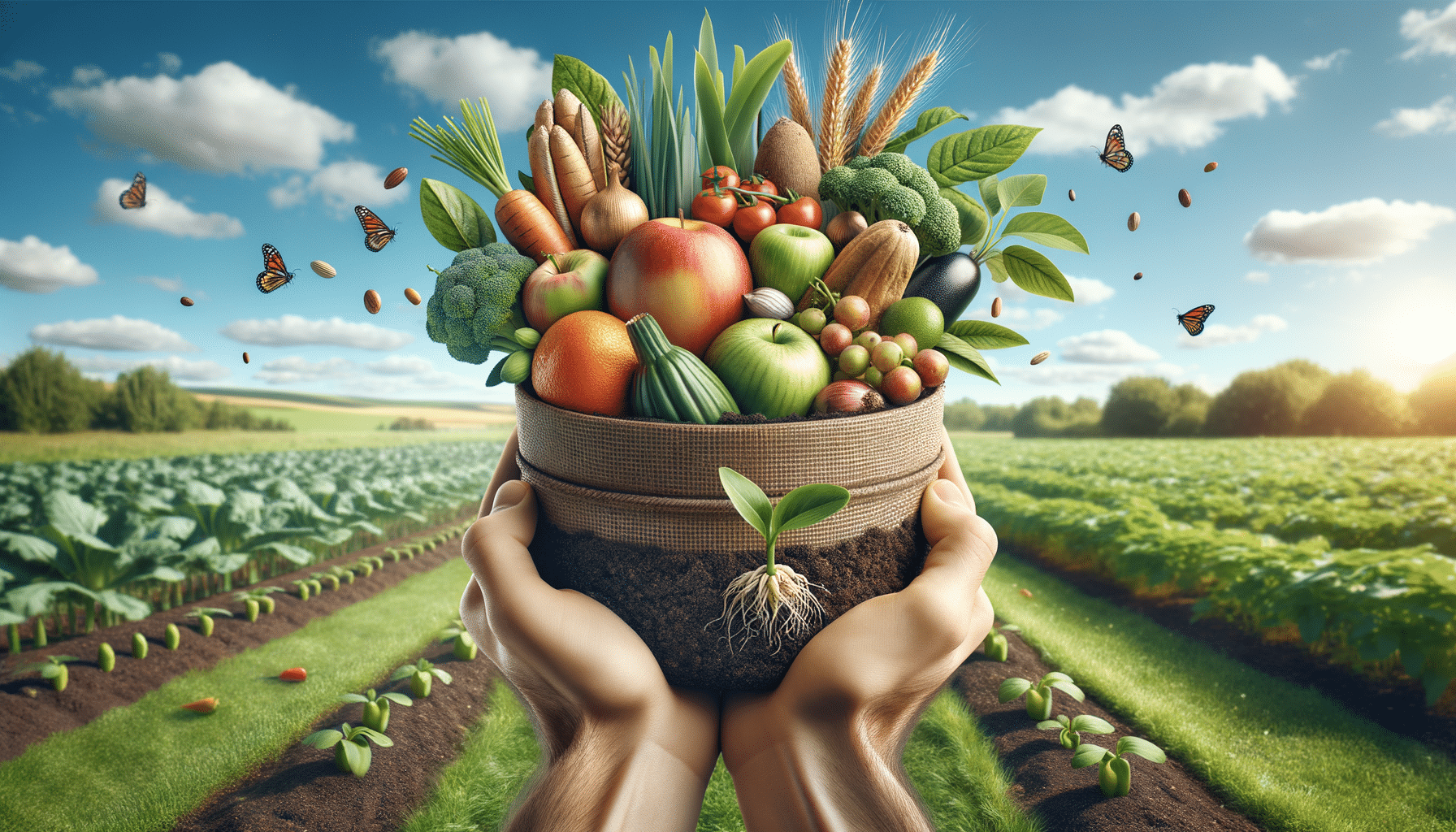
Exploring the World of Organic Food: Benefits, Challenges, and More
Understanding Organic Food: What Sets It Apart?
Organic food has become a buzzword in recent years, but what exactly does it mean? At its core, organic food refers to products that are grown and processed without the use of synthetic fertilizers, pesticides, or genetically modified organisms (GMOs). The focus is on using natural substances and processes to maintain soil fertility and ecological balance. This method of farming aims to reduce pollution, conserve water, and enhance soil quality.
One of the primary distinctions of organic food is its certification process. To be labeled as organic, producers must adhere to strict guidelines set by certifying bodies. These include restrictions on the use of certain chemicals and a commitment to sustainable farming practices. This rigorous certification ensures that consumers can trust the organic label, knowing it meets specific environmental and health standards.
While organic food is often associated with fruits and vegetables, it extends to a wide range of products including dairy, meat, and processed foods. The organic movement is not just about what is absent from the food, but also the holistic approach to farming that prioritizes biodiversity and the health of ecosystems.
The Health Benefits of Organic Food
One of the most compelling reasons people choose organic food is the potential health benefits. Organic produce tends to have lower levels of pesticide residues compared to conventionally grown produce. This reduction in chemical exposure is particularly important for vulnerable groups such as children and pregnant women.
Moreover, studies have shown that organic foods often contain higher levels of certain nutrients. For instance, organic fruits and vegetables have been found to contain more antioxidants, which are compounds that help combat oxidative stress and may reduce the risk of chronic diseases. Additionally, organic dairy and meat products tend to have higher levels of omega-3 fatty acids, which are beneficial for heart health.
While the debate continues about the extent of these health benefits, many consumers appreciate the peace of mind that comes with consuming products that are free from synthetic chemicals and GMOs. The emphasis on natural growing methods also resonates with those who prioritize holistic health and wellness.
Environmental Impact of Organic Farming
Organic farming practices are designed to benefit the environment in several ways. By avoiding synthetic fertilizers and pesticides, organic farming reduces pollution and the risk of chemical runoff into waterways. This approach helps protect aquatic life and maintains the quality of water sources.
Furthermore, organic farming practices promote biodiversity. By rotating crops and using natural pest control methods, organic farms create habitats for a variety of organisms. This biodiversity is crucial for maintaining ecosystem health and resilience. Organic farms also tend to use more sustainable practices such as composting and crop rotation, which enhance soil health and reduce erosion.
However, it’s important to acknowledge that organic farming is not without its challenges. It often requires more land to produce the same yield as conventional farming, which can be a concern in regions with limited arable land. Despite these challenges, the environmental benefits of organic farming make it a vital component of sustainable agriculture.
The Economic Considerations of Organic Food
The price of organic food is often higher than that of conventional products, which can be a barrier for some consumers. This price difference is due to several factors, including the more labor-intensive farming practices and the costs associated with organic certification.
Despite the higher cost, the demand for organic food continues to grow, driven by increasing consumer awareness and a desire for healthier and more sustainable options. Many consumers are willing to pay a premium for organic products because they see it as an investment in their health and the environment.
For farmers, transitioning to organic farming can be a significant financial commitment. However, it can also open up new market opportunities and potentially higher profit margins. Governments and organizations often provide support and incentives to encourage more farmers to adopt organic practices, recognizing the long-term benefits for society and the environment.
Challenges and Future of Organic Food
While the organic food industry has made significant strides, it faces ongoing challenges. One major issue is the scalability of organic farming. As demand for organic products grows, there is pressure to increase production while maintaining the integrity of organic standards.
Another challenge is consumer confusion. With so many labels and claims on food packaging, it can be difficult for consumers to understand what truly constitutes organic. Education and transparency are key to helping consumers make informed choices.
Looking to the future, the organic food industry is likely to continue evolving. Advances in technology and farming techniques may help address some of the current limitations, making organic food more accessible and affordable. As more people become aware of the benefits of organic food, it is poised to play an increasingly important role in our diets and in sustainable agriculture practices worldwide.